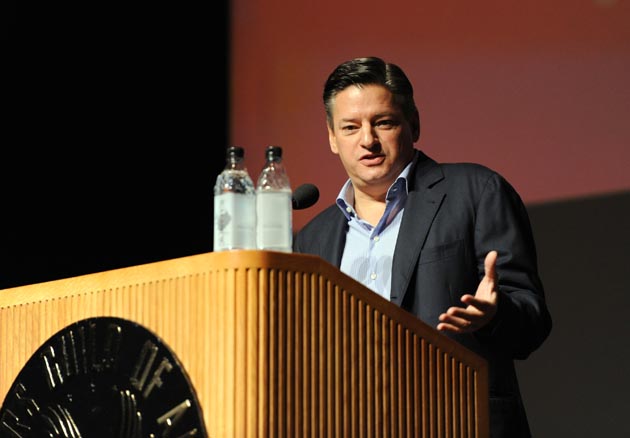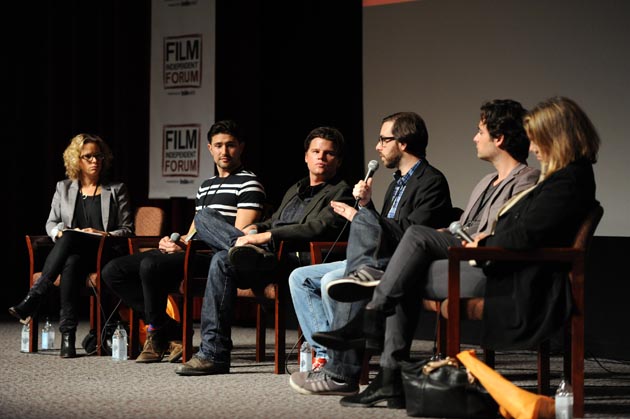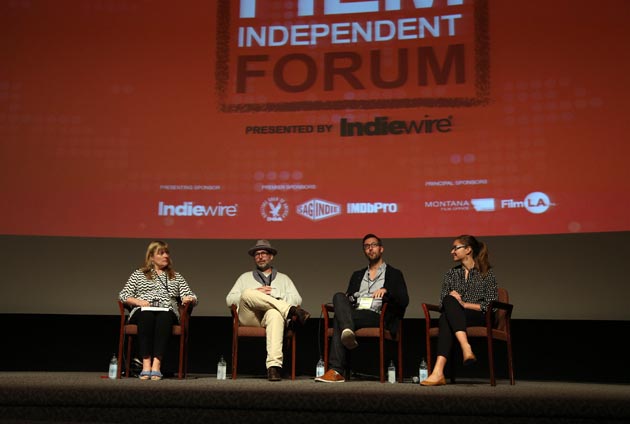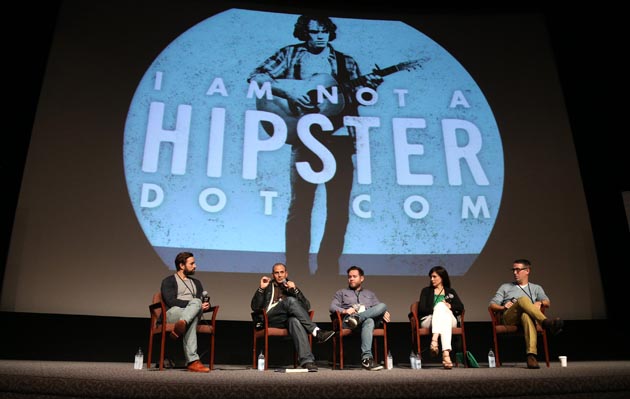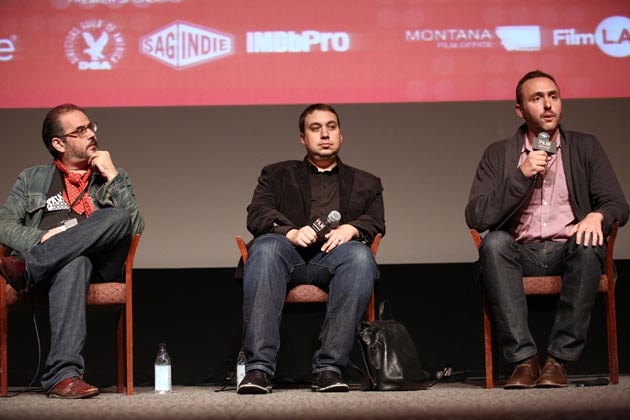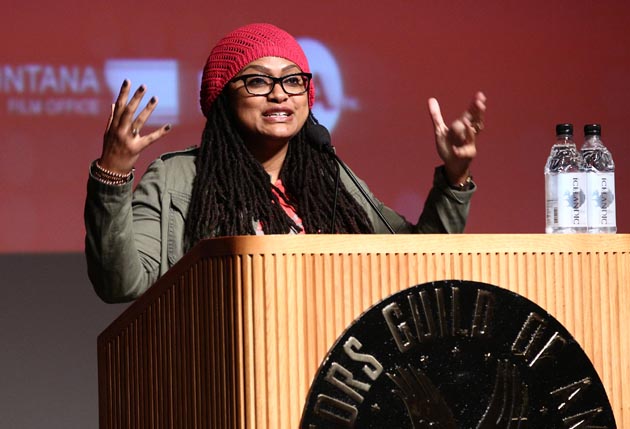Netflix Chief Content Officer Ted Sarandos kicked off the event with a somewhat controversial keynote and the staggering fact that 5 billion hours of content are streamed annually via his platform. While he acknowledged Netflix got its start with indie film, he was far more bullish on TV which makes up 70% of viewed content on Netflix.
TV is where the audience is. It's where the innovation is happening. And it might just be the future of independent production. –Ted Sarandos
Check out the video below.
The crowdfunding panel was a great discussion between Indiegogo exec Marc Hofstatter, Slated co-founder Stephan Paternot, Roman Polanski: Odd Man Out director Marina Zenovich, attorney Lisa Callif, and the filmmakers behind Thunder Road . Most nuggets of interest came from Paternot whose platform is a social network for industry insiders that matches filmmakers with equity and debt investors.
Most Slated investors are there for patronage and participation before they're there for profit. –Stephen Paternot
Perhaps most interesting was his enthusiastic support for crowdfunding (which his site does not do) as well as more traditional equity or debt investments.
You need to be setup to collect equity, debt, and donations… The more successful the crowdfunding campaign, the more successful you'll be on Slated. –Stephen Paternot
The marketing panel turned into an extremely interesting case study for the film Indie Game: The Movie. Directors Lisanne Pajot and James Swirsky sat with Bond Strategy and Influence head Marc Schiller and Fandor marketer Liz Ogilvie to talk about all the things that they did to connect to their audiences and market the film directly to them.
A fanbase is the greatest asset an artist has. –Marc Schiller
Their advice was to define and target your core audience and take great effort to make sure your appeal reaches outside that niche as well as serving that niche. With Indie Game, the filmmakers distributed their film via Steam because they knew the gamers of their core could access the film there, but then made sure it was a story about "creating" before it was a story about "creating games" so it would appeal to a wider audience.
Steam. Humblebundle. These communities will the future of how films are distributed. –Marc Schiller
The self-distribution panel featured Sundance #ArtistServices honcho Chris Horton talking to I Am Not A Hipster and Short Term 12 producers Ron Najor and Asher Goldstein, and Burn filmmakers Brenna Sanchez and Tom Putnam. The big reveal of the panel from Horton was the dirty secret that while overall VOD revenue is going up, average VOD revenue is actually going down. Therefore it's more important than ever to watch your film's bottom line.
Our attitude for every element of distribution was can we do it for free—or if not, can we do it for next to nothing. –Ron Najor
The Burn filmmakers spent over $1 Million making their documentary and then went on an extensive tour of dozens of cities to host specialty screenings. After spending $70,000 to launch an Academy qualifying campaign, they had this advice:
If you can't spend $350,000 to awards qualify your film, don't even bother. –Brenna Sanchez and Tom Putnam
The reinventing theatrical exhibition panel included Variance head Dylan Marchetti, Cinefamily founder Hadrian Belove, Tugg co-founder Nicolas Gona, and Art House Convergence director Russ Collins. The panel featured a great conversation about where theatrical is heading outside the mainstream and in the world of VOD.
We theaters know we are essentially a marketing outpost for your films. –Russ Collins
There were some interesting myths dispelled about the world of film exhibition. One is that it is completely untrue that theaters make the majority of their profits from concessions. The death of the cinema is also greatly exaggerated; a fact that everyone on the panel was passionate to support.
We're not a nation of shut-ins. People want to go to the movies… The social media revolution wasn't, "Let's get Facebook so we don't have to leave the home to talk to people." It was, "Let's get Facebook so we never have to stop." –Dylan Marchetti
Ava DuVernay gave the filmmaker keynote where she encouraged all filmmakers to stop making excuses, stop asking people to coffee, stop looking for people that have all the answers, and make your movie.
You can see her full speech here and see you next year.









